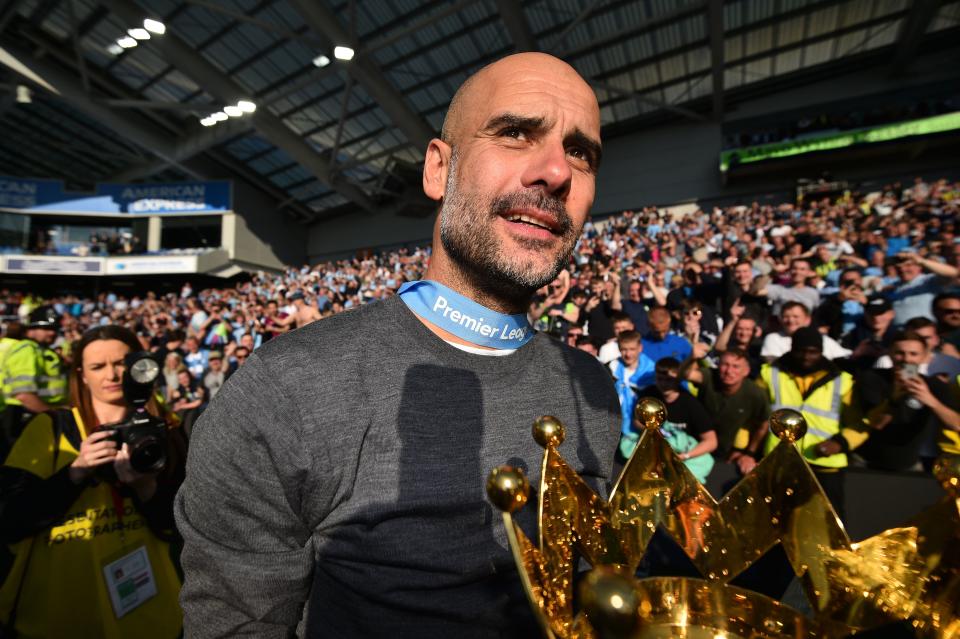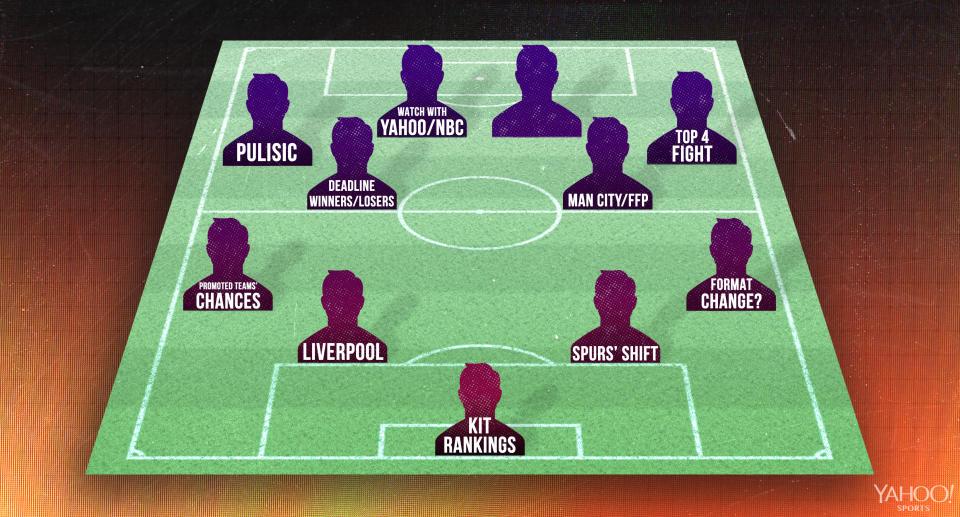Premier League preview: Manchester City’s wealth doesn’t diminish its success

Welcome to Yahoo Soccer’s Premier League Starting XI. This lineup of stories will get you ready for the upcoming season as we count down to kickoff Friday at noon ET.
After two Premier League titles in a row and four in eight years, we still don’t know how to talk about Manchester City.
That is to say, some debate remains over whether its success is entirely legitimate or not. Because to the holdouts, all that City silverware is clouded, somehow, because in less than a decade the club has tripled its number of domestic championships from the previous 130 years or so.
After all, City’s titles are bought. The receipts are out on the field, in the mere fact that out of the 25 most expensive incoming Premier League transfers of all time, eight are City’s, more than any other club. Although it should be said that Manchester United is responsible for the top three, and City has none in the top six.
At last count a year ago, the Abu Dhabi ownership had put a staggering $1.76 billion into the club since buying it in 2008. And all of this has come to the fore once again because UEFA, soccer’s European governing body, has referred City to the adjudicatory chamber of its own disciplinary body for violating Financial Fair Play rules.
In 2014, City also ran afoul of the rules, implemented to protect clubs from their own rampant overspending by putting caps on losses and outside investment, and was fined some $60 million. This time around, an article published in Der Spiegel , revealing documents obtained by Football Leaks, claimed that the club’s sponsorship deals from Abu Dhabi-based companies were wildly overinflated.

City awaits its punishment and, as repeat offenders, could face expulsion from the Champions League it so desperately wants to win. But then again, the New York Times discovered through internal UEFA documents that in the case of another major club in breach of FFP, Paris Saint-Germain, the governing body had shown little interest in actually prosecuting those violations. Rather, it let the whole thing slide, suggesting UEFA doesn’t actually think it has the clout to enforce its own rules. AC Milan, meanwhile, was suspended from European competition in an FFP sanction only for the Court of Arbitration for Sport to overturn it as excessive, whereupon Milan then accepted expulsion voluntarily.
Were it not for any of this FFP business, which while noble in its conception appears feckless in practice, City would perhaps get more credit for its significant accomplishments, casting away the implicit suggestion that its success is somehow unearned. After all, Pep Guardiola’s side has posted the two highest point totals in Premier League history the last two years, all while playing dazzling soccer.
Sure, it feels a little icky. A little odd for all that silverware, the endless purchases of arrived superstars, the fancy coach and the state-of-the-art facilities, the expensive second-string left backs, to have been bought with an investment from an owner – Sheikh Mansour bin Zayed Al Nahyan, the half-brother of the president of the United Arab Emirates and Emir of Abu Dhabi – who seems to treat it as an elaborate branding play for his home country. An owner who has reportedly been to just one City match during his 11 years with the club, missing all four Premier League title games.
To consider City’s dominance as illegitimate, however, is either naïve or hypocritical.
This is how it works. Money is all that matters at the top end of club soccer. This is how it has always worked. Surely half, if not more, of the great European club teams of the last few decades were backed with vast riches from outside the club, gained inorganically.

PSG is, of course, propped up by Qatar. Chelsea was transformed by a bored Russian oligarch. But a soccer team as a luxury item or a kind of objet d’art is hardly a new thing. Going back to the 1980s, Italy’s tycoons competed with one another through their soccer teams, namely Juventus, AC Milan and Inter Milan. Meanwhile, Real Madrid and FC Barcelona are fan-owned, sure, but they’ve also been the beneficiaries of subsidies and bailouts and loans from local governments and wealthy patrons.
If you think Barca is somehow pure for developing some of its own stars, consider that the only reason it retained them is because it could afford to pay them at above-market rates. Lionel Messi’s near-nine figure annual salary doesn’t happen without business offices on four continents shaking loose every last sponsorship dollar from companies willing to overpay just to associate themselves with the club.
This is simply how it’s done.
The only difference between all those clubs and City is that City’s moneyed rise coincided with a time when UEFA made a lot of noise about remaking its clubs into sustainable businesses — and then backing off when it caught rule-breakers. How, exactly, that money comes into the club, whether through direct investment or a now-illegal sweetheart sponsorship, is academic.
Lots of major teams were nouveaux riches at some point. What separates the ones that last from the one-season wonders is how they spend that money. City, after a few spectacular early misfires in the transfer market – Robinho anyone? Roque Santa Cruz? – figured out best practices.
And then it perfected them, yielding unprecedented results.
Leander Schaerlaeckens is a Yahoo Sports soccer columnist and a sports communication lecturer at Marist College. Follow him on Twitter @LeanderAlphabet.
Yahoo Soccer’s Premier League Starting XI


 Yahoo Sport
Yahoo Sport 






































